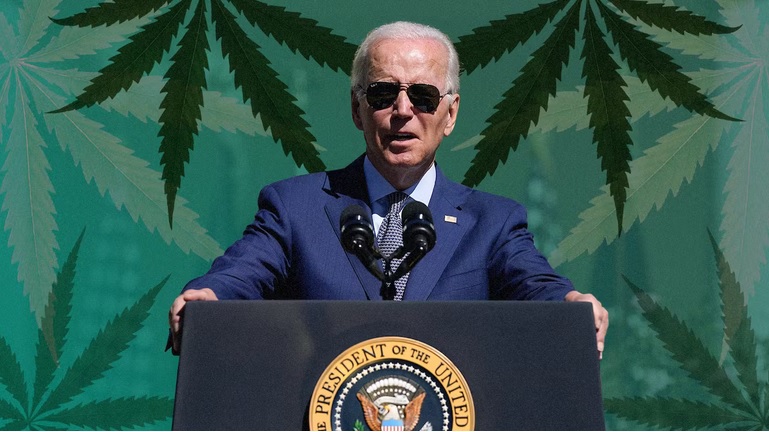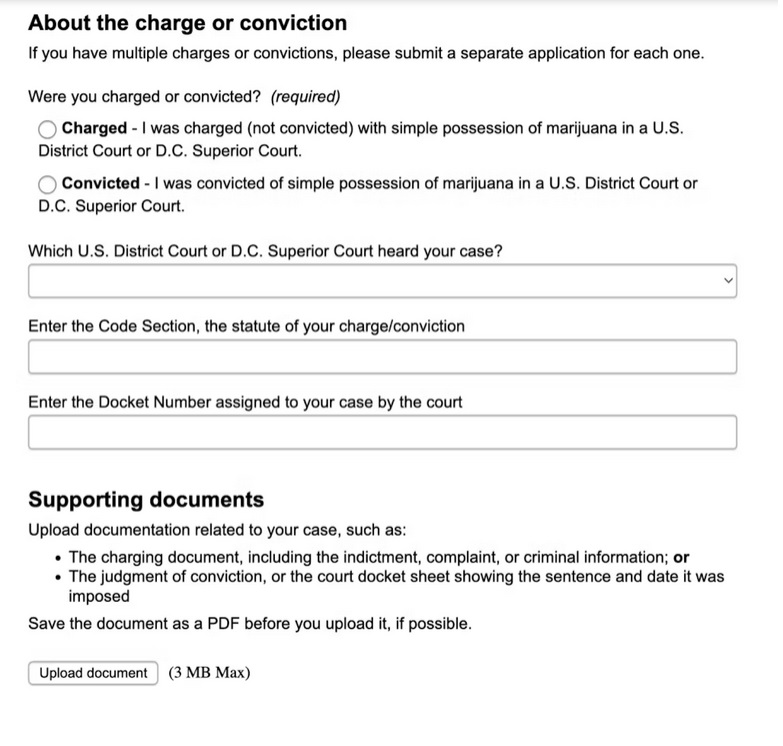How to apply for a Biden weed pardon

After months of waiting, the Justice Department just went live with an online application. More than 20,000 people are eligible.
Nearly five months after promising pardons for federal convictions for marijuana possession, President Biden has actually made progress on the action.
Earlier this morning, the Department of Justice’s Office of the Pardon Attorney announced the publication of an application form dedicated to those who wish to redress a past federal weed conviction.
Those who wish to apply can do so via the online portal here.
Here’s what you’ll need to apply
The intake form asks for the usual information: Name, address, phone, birthdate, etc.
There are also supporting documents that you’ll want to gather.
You’ll want to know:
- Which US District Court heard your case
- The Code Section (statute of your charge/conviction)
- Your case docket number
You’ll also want to have on hand:
- The charging document (indictment, complaint, etc)
- The judgment of conviction or sentencing
You’ll need to take a photo of those documents, and then save them as pdf’s, in order to upload them to the online application form.
Here’s a screenshot of what’s asked for in the application:

Pro tip: PACER might have your documents
PACER, the public access web site that lets you search federal court databases, might be helpful for those who don’t have records of a case that might have happened years ago.
You’ll need to set up a PACER online account, which requires a credit card (documents are generally ten cents per page). Once you have an account, you can use PACER’s Case Finder search engine to locate your documents.
A pool of 20,000 potential applicants
According to the Justice Department, there may be 20,000 people who are eligible for Biden’s federal weed pardon.
The Office of the Pardon Attorney promises that “the application for the [pardon] certificate is simple, and will not take long to complete, between 10 and 30 minutes.”
Quick and easy, they say
According to a simultaneous filing in today’s Federal Register, the application may require 10 minutes to two hours of effort, including research, phone calls, and conversations with necessary personnel to attain the appropriate documentation.
This is for federal, not state, convictions only
Again, just to be clear: This process only affects people with federal cannabis convictions. Biden has no power to grant pardons to those convicted in state courts. Each state’s governor or legislature controls those expungement processes. Many state legalization measures include expungement requirements within the law itself.
Here’s how a pardon may be helpful
Today’s Justice Department announcement included this assessment:
“The President’s pardon, effective Oct. 6, 2022, may assist pardoned persons by removing civil or legal disabilities — such as restrictions on the right to vote, to hold office or to sit on a jury — that are imposed because of the pardoned conviction. The application released today may also be helpful as proof of pardon for those who seek to obtain licenses, bonding or employment.”
A big announcement and then…a long wait
The Biden administration has come under fire for the months of silence that followed the President’s splashy October 2022 announcement.
Vice News summed up the feelings of many in this article published in January 2023:
Today’s announcement, along with the opening of the application portal, finally puts an end to the speculation, frustration, and wait.
If you are eligible: Apply as soon as possible. It’s unclear how the applications will be processed, but if it’s first-come, first-served, you’ll want to get in there early.





